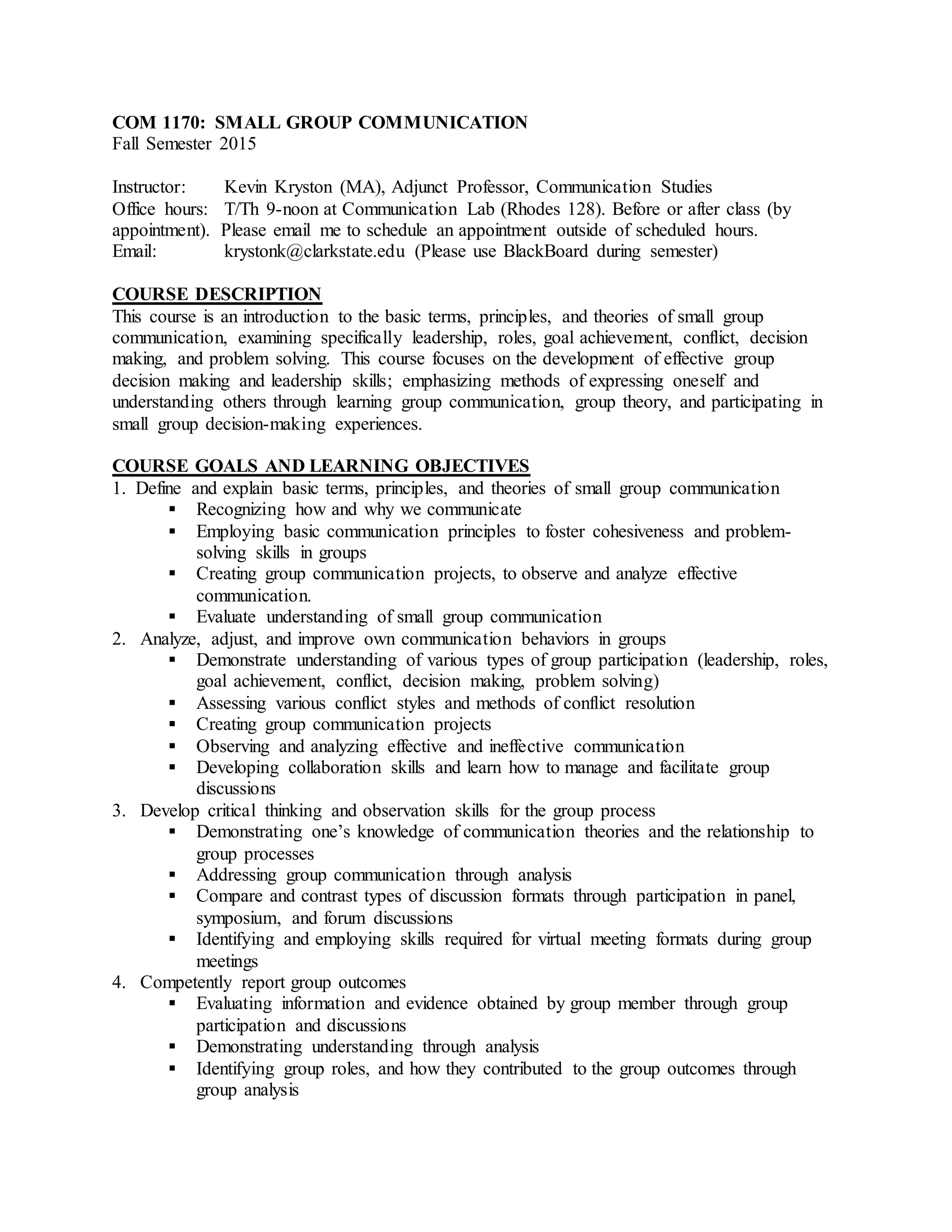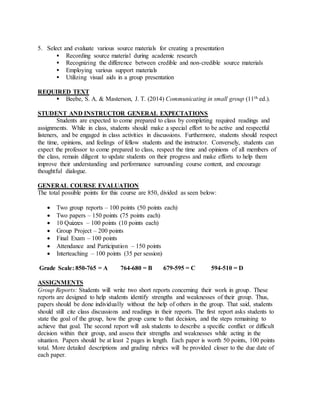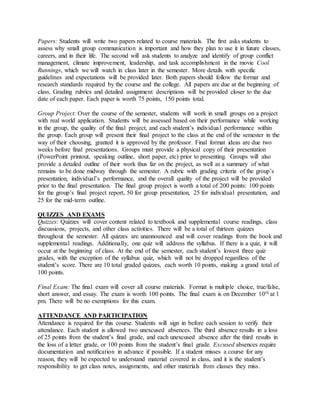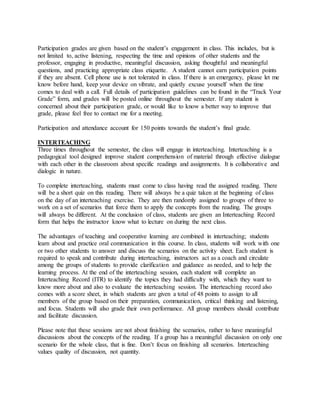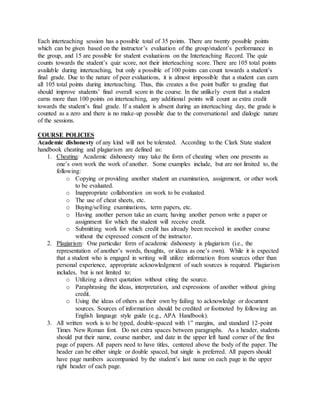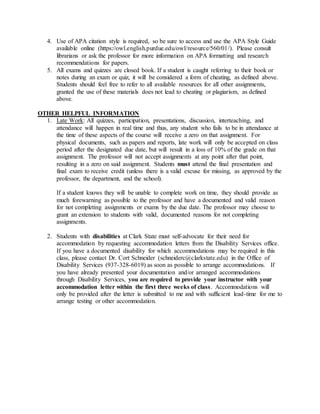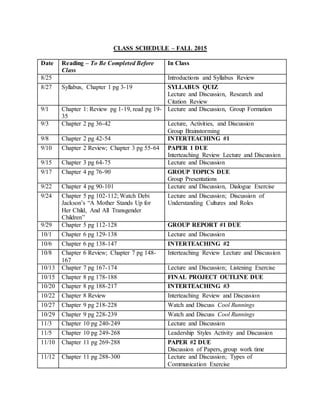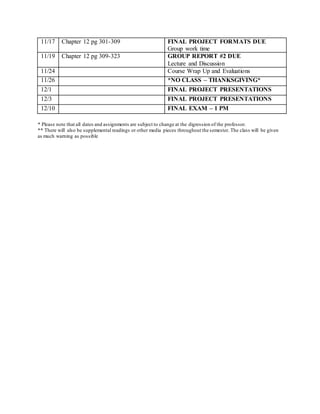This document provides information about a small group communication course being offered in the fall semester of 2015. It includes details about the instructor, course description and goals, assignments, grading structure, and class schedule. The main goals of the course are to define small group communication principles and theories, analyze and improve communication behaviors in groups, develop critical thinking skills for group processes, competently report group outcomes, and select and evaluate source materials for group presentations. Graded assignments include group reports, individual papers, quizzes, a group project, and a final exam. Students will participate in small group activities and discussions throughout the semester.
